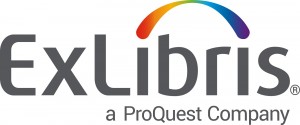Improving Research Workflows

Breaking down the silos in higher-education research can lead to better outcomes. Here’s how
 Supporting cutting-edge research is critical to the mission of universities. But all too often, the various steps in the research lifecycle are disjointed. This leads to inefficiencies that make the process harder than it has to be, costing universities—and individual researchers—valuable time, money, and even recognition for their work. Breaking down these silos and improving the flow of information would allow for greater collaboration between campus libraries, researchers, and the research office. This would improve research outcomes and reduce the burden for everyone involved.
Supporting cutting-edge research is critical to the mission of universities. But all too often, the various steps in the research lifecycle are disjointed. This leads to inefficiencies that make the process harder than it has to be, costing universities—and individual researchers—valuable time, money, and even recognition for their work. Breaking down these silos and improving the flow of information would allow for greater collaboration between campus libraries, researchers, and the research office. This would improve research outcomes and reduce the burden for everyone involved.
The Problem
As they occur today, the numerous steps in the research process—from planning projects, to securing grants, to collecting, storing, and analyzing information, to publishing and disseminating the results—generally involve different technology systems and stakeholder groups, with limited communication between them. For instance, universities often use disparate platforms to handle each aspect of the research lifecycle. These include…
- Research across multiple campus departments, making it difficult for faculty and staff to administrative systems for managing grants, documenting and reporting on research activities, and ensuring compliance with regulatory processes;
- Research data management systems for organizing, storing, and overseeing the data collected in research projects; and
- Institutional repositories and/or current research information systems for archiving and publishing research results and showcasing faculty outputs.
Rarely do these separate platforms “talk” to each other or share data. Moreover, these various research functions typically are spread coordinate efforts or to know what others are doing. Making matters worse, different departments within the same university might use separate processes or technologies to conduct research independently of each other. Researchers from one department might store their data in a spreadsheet, for example, while another department might use a university database. Or, two different departments might use two different software systems to accomplish the same function.
The Implications
One unintended outcome of this siloed approach to research is a duplication of effort. For instance, a library employee might create a spreadsheet to track the information collected for a certain research project, unaware that such a template or resource already exists in another department. A more serious consequence is that management of a university’s various research objects—such as data, publications, creative work, algorithms, and other outputs and processes—becomes more difficult. This makes it harder to get a complete picture of an institution’s impact, and it could affect compliance with grant regulations as well. When information is stored in separate systems, there are often variations in the completeness or consistency of the data. What’s more, the use of disparate systems makes it challenging to ensure that all of these assets are discoverable both within and outside of the institution. For example, it becomes harder for library staff and other stakeholders to find these assets and link them together.
A New Approach
One step that would help is for universities to require, or at least offer, the use of tools that enable consistent research practices across departments and disciplines. Obviously, the needs of each department will vary, but the more each department can be using the same resources and technology systems, the fewer different workflows there will be. And indeed, many university research offices have made strides in this area. But this doesn’t solve the challenge of having to use disparate technology systems for separate research functions. To break down the silos that exist in the research process more completely, a new type of research platform that can unify these various functions is needed. Ideally, this platform would be based on open standards, so that it integrates with other existing research systems. It would include automated processes to streamline research workflows, such as updating scholarly profiles whenever new work is published. It would contain built-in metrics to demonstrate the use and impact of research outputs. And it would be cloud-based, so that everyone has visibility into research objects and associated data. In this scenario, all stakeholders involved in the research process would benefit:
- Library and research administrative staff would not have to enter information in multiple places, because a unified platform would pull data automatically to populate various sub-systems.
- Researchers would benefit from greater visibility into the research assets of the entire university community, including their own outputs.
- Research offices could ensure compliance with regulations and quantify the impact of the institution’s research efforts more easily.
- Libraries could demonstrate their value to the university by becoming more effective partners in the research process.
Aiming to fill this need, Ex Libris has partnered with five leading universities to develop Esploro, a new Research Services Platform that ties these various functions together. “One of (our) strategic goals is to foster a campus culture in which our instructors, students, and staff can maximize their research productivity,” says Paul A. Soderdahl, associate university librarian at the University of Iowa, one of the five partner institutions. “A feature-rich, integrated platform for collecting, describing, and promoting research outputs (would) help us reach that goal.”
Complimentary Webinar
Libraries and Research Services Finding a Way Forward to Increase Impact, Productivity, and Collaboration
Wednesday, May 23, 2018
SPONSORED BY

RELATED
ALREADY A SUBSCRIBER? LOG IN
We are currently offering this content for free. Sign up now to activate your personal profile, where you can save articles for future viewing









Add Comment :-
Comment Policy:
Comment should not be empty !!!